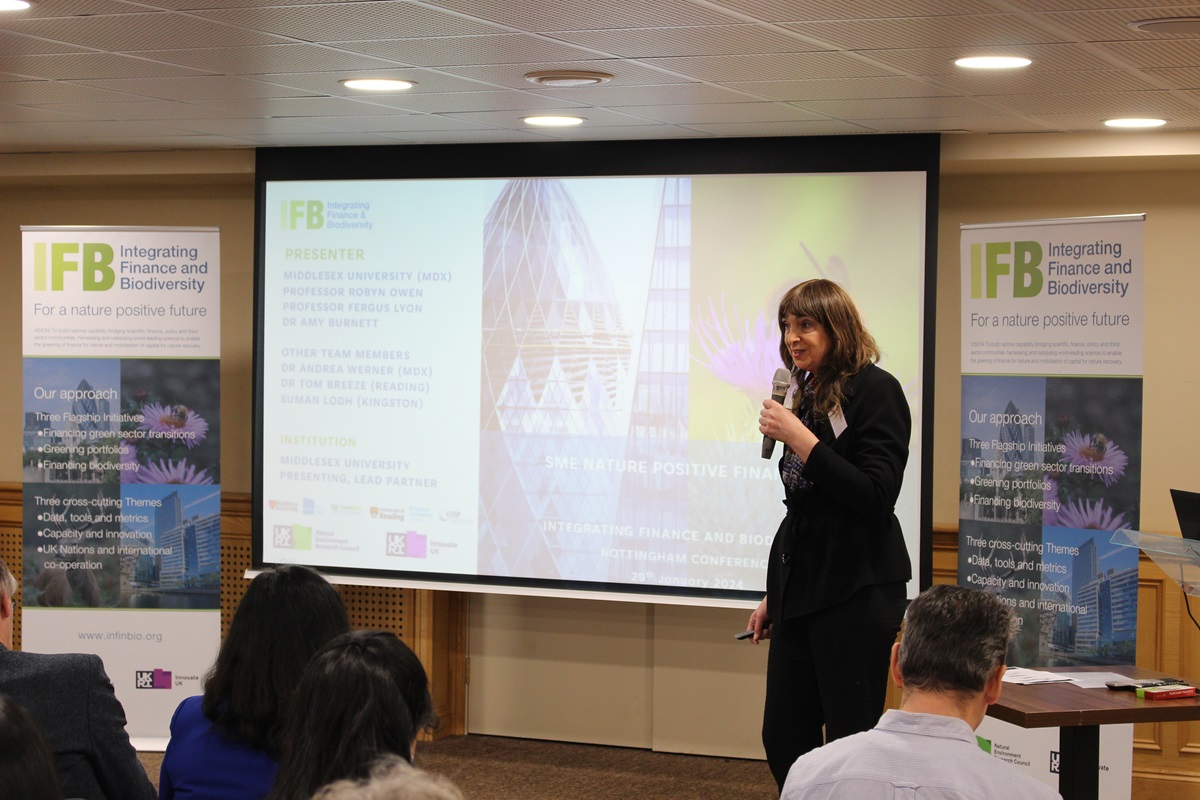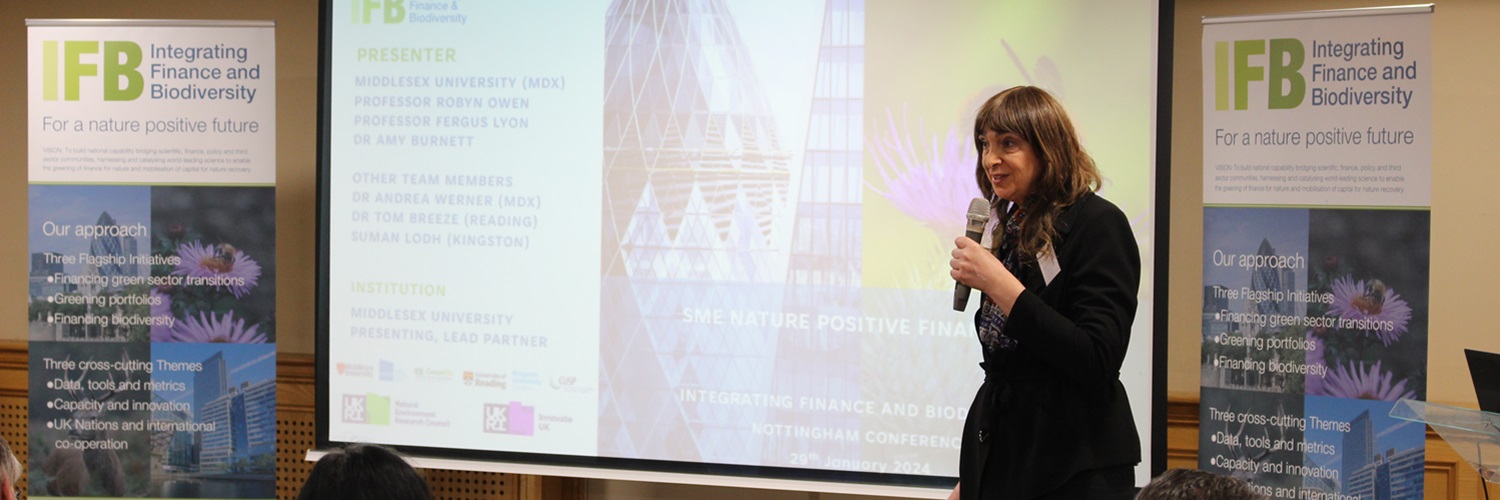The joint Integrating Finance and Biodiversity and Economics of Biodiversity Conference 2024 was held in Nottingham.
The first day included presentations from all 12 IFB Phase I pilot projects. In the final instalment of a four-part series, we provide overviews of presentations ten to twelve. Presentations 1 - 3, Presentations 4 - 6, and Presentations 7 - 9 are also available.

Professor Robyn Owen presenting SME Nature Positive Finance
Aonachadh – Julia McCarthy, Scotland’s Rural College (SRUC)
Julia reported that the Scottish Nature Finance Pioneers (SNFP) Survey had elicited 95 responses from a network of 550+ nature-finance and restoration professionals highlighting their motivations and perceptions of ecological data and community engagement.
Julia outlined some of the challenges attached to attracting funding, and the importance of understanding nature finance routes, green finance, and innovative funding models. She went on to explain that the business models that have been developed describe how that funding is used over time to generate revenues, returns or other expectations of investors, and fund the full life cycle of a project.
Aonachadh – that is the Scottish Gaelic word for uniting or combining - will continue to bring together collective knowledge, experience and policy learnings from the UK’s four nations, Europe and beyond to find common paths forwards in nature finance policy and practice.
Nature-positive investment through solar parks – Prof. Piran White, University of York
Piran described the successes of the project. These included: successful dialogue between ecologists, land managers, renewables businesses, and investment professionals; recognition among stakeholders of the potential use of metrics for reporting and benchmarking; excellent lead partner engagement; and the enthusiasm among the stakeholder community for continuation of the work.
Some of the challenges encountered were : understanding terminology and frameworks across academia and business; reaching ‘decision-grade’ metrics in the context of different business needs; communicating complex patterns in indicators; choosing between absolute measures, or measures against a baseline or threshold; and recognising and understanding trade-offs.
Piran concluded by outlining some of the issues that are still to be addressed that include resolving environmental impacts of solar across life cycle, developing decision-grade metrics that meet investment fund requirements, and using environmental payments to enhance nature-positive actions and delivery of natural capital and ecosystem services from solar.
SME Nature Positive Finance – Prof. Robyn Owen, Middlesex University
Robyn reported how the project had implemented effective outreach methods to engage with early-stage angel investor networks, sector trade bodies such as the British International Freight Association, local Authorities and West London agencies, large businesses, business accelerators, policy bodies, and Biodiversity Net Gain development (BNG) pioneering finance cases.
The challenges encountered included: raising awareness among SMEs – shifting from Net-Zero focus to integrated nature-positive finance; laggard sectors – transport – linking pollution to health and nature; and developing community-based initiatives – progressing knowledge, networking, collaboration and regulations; and developing effective support tools.
In the coming year, there will be a continued UK sector focus, and scenario planning focused on SME innovations. There will be improved practical, sector-based toolkit support, policy briefing support, and better integrated ecological services innovation to deliver practical solutions.
